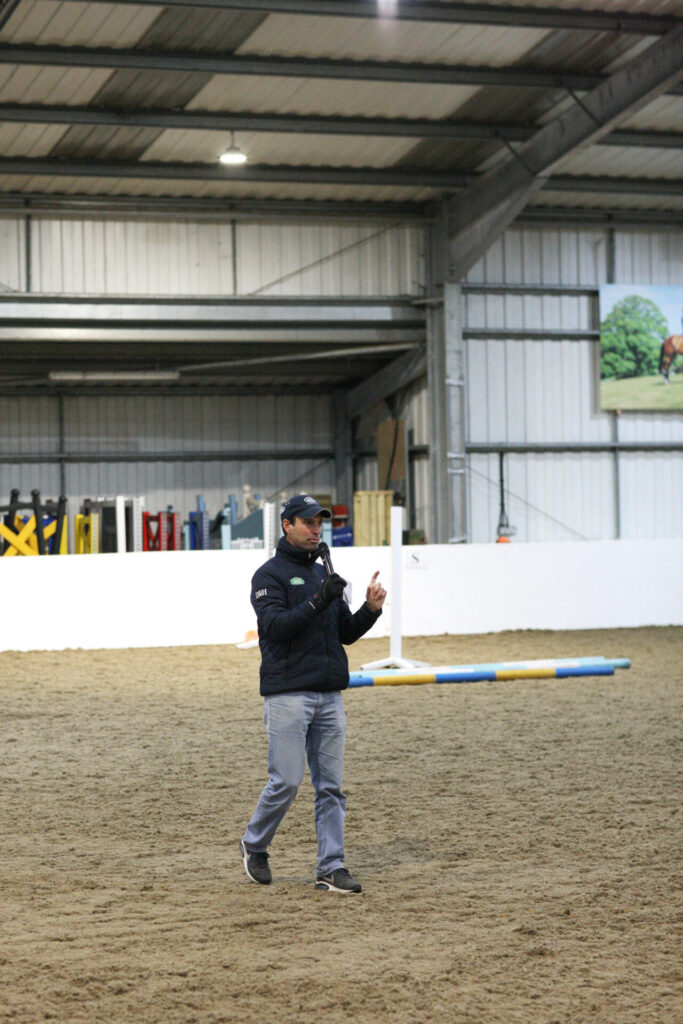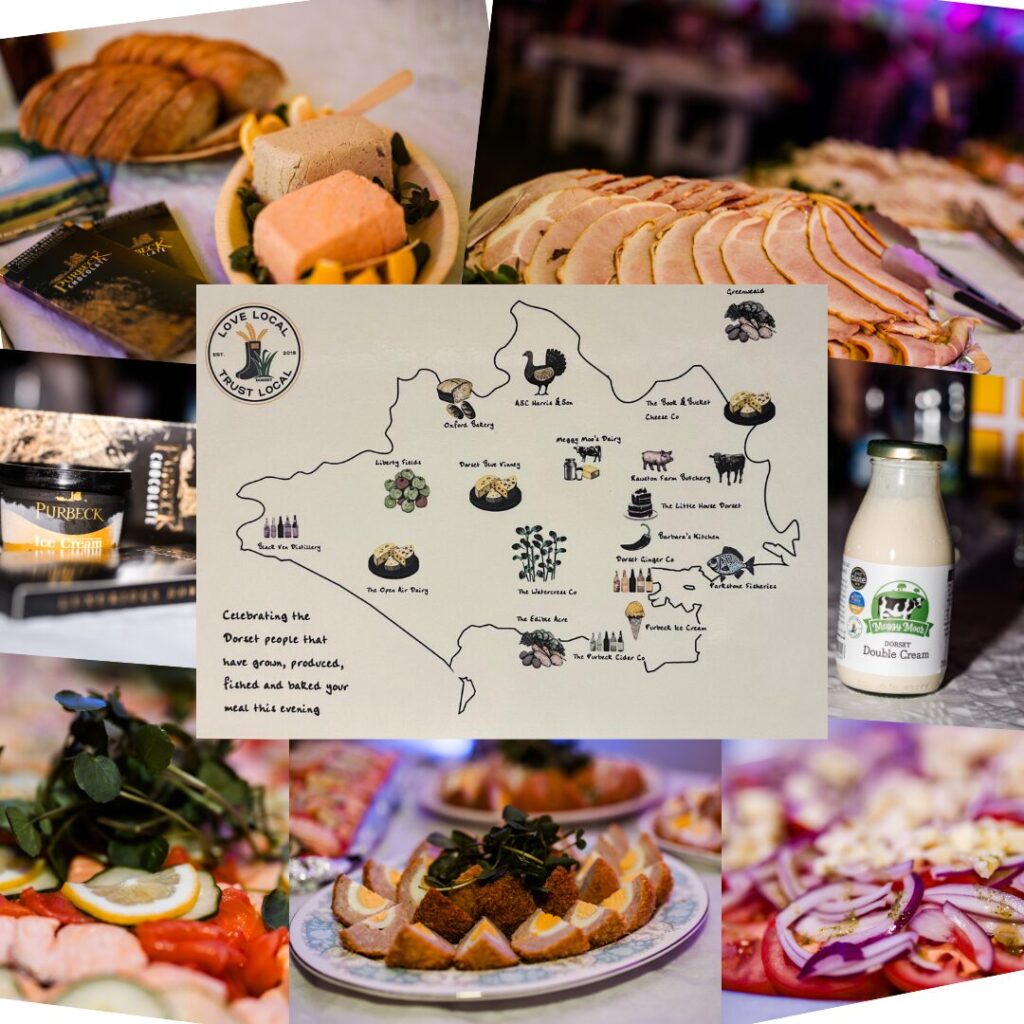From fainting goat to star pupil – Sir Henry Hall’s masterclass debut with Harry Meade proves a winter training triumph
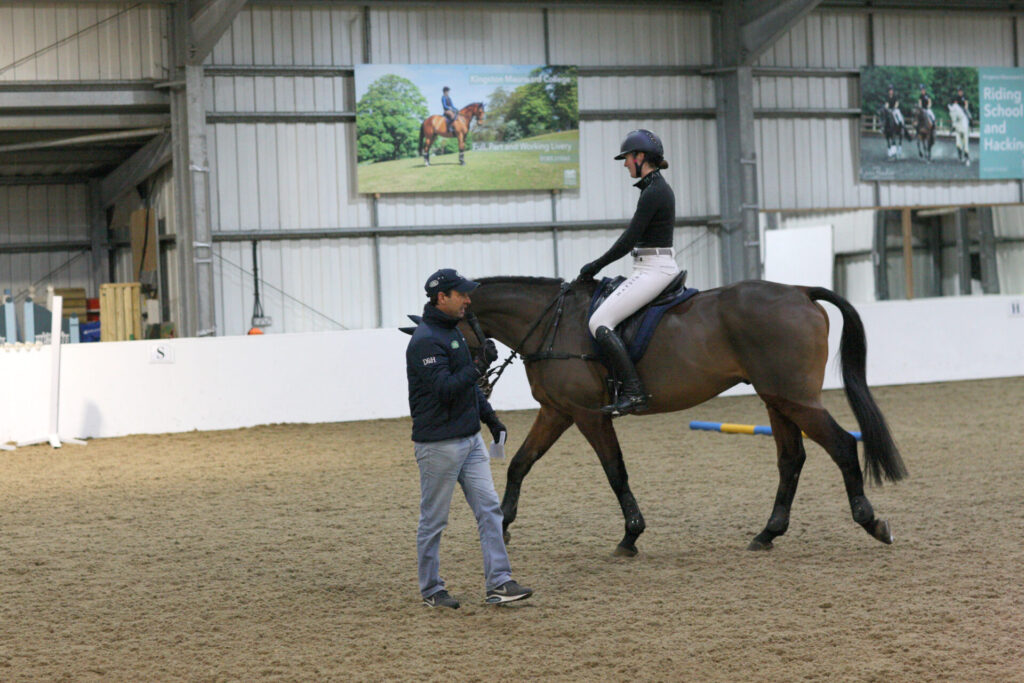
Courtenay Hitchcock
November has been much quieter our end, but we’ve still had a productive month of winter training! As I said last month, Henry (Sir Henry Hall) has stayed in for the winter while the others are out on holiday: we’re keeping his brain in gear and preparing for 2025.
Back in the summer, I was asked to be a demo rider in a masterclass with 5* British eventing rider Harry Meade. At the time, November seemed a mile away, but here we suddenly were! The event was at Kingston Maurward, and I decided to take Henry – not only because he’s my only horse in work, but I was also interested to see Harry’s take on him, being such a quirky individual (Henry that is, not Harry!).
Anyone who has seen any sort of masterclass will understand when I say it is quite an intense environment for a horse. I genuinely had no idea how Henry was going to cope – if Henry was a bird he would be an ostrich. He is the first to bury his head in the sand at anything he finds remotely scary! Actually, scrap that … he would be one of those fainting goats – you know, the ones that try to run away, freeze up and fall over instead? Yep. He’s one of those.
Basically, I had no idea how Henry would deal with rows of onlookers wrapped in blankets and cradling hot chocolate. A friend of mine recognised Henry instantly when she arrived – she pointed to him, then at me, and asked “are you actually crazy?”.
To all of our surprise, though, he took the evening in his stride and overall he behaved brilliantly. I think he even started to enjoy the applause towards the end!
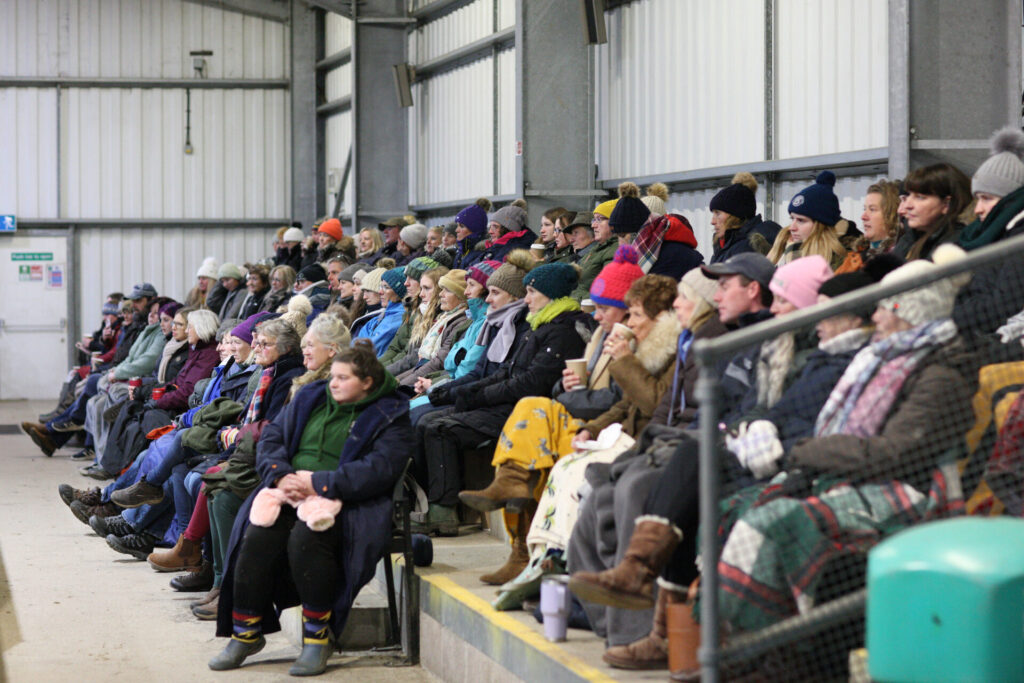
The fence of doom
The focus of the demo was on the general training and producing of an event horse. In the dressage, Harry discussed the importance of a horse bending throughout its whole body, and we also practised some footwork. Harry started us with regularly-spaced trot poles (like we normally would at home), but then started to roll them around into totally random positions. Although this surprised us at first, it highlighted the importance of a horse being given the length of rein they need to allow them to read a situation themselves, so as not to tread on the poles. The ability to sort their own footwork is so important in event horses, especially when going cross country over all sorts of terrains. Henry did pretty well at this one – although he is a quirky horse, he is absolutely brilliant at getting his feet out of the way. Perhaps because he used to run himself into all sorts of trouble as a young horse, he’s learned to get himself out of it!
Next, we moved on to the jumping. We started in trot, the same as we do at Fox-Pitt’s, and then some grid work to warm us up. Then we did some jumping on a circle to again focus on suppleness and turning. Henry finds this difficult, so it was a really useful exercise for him.
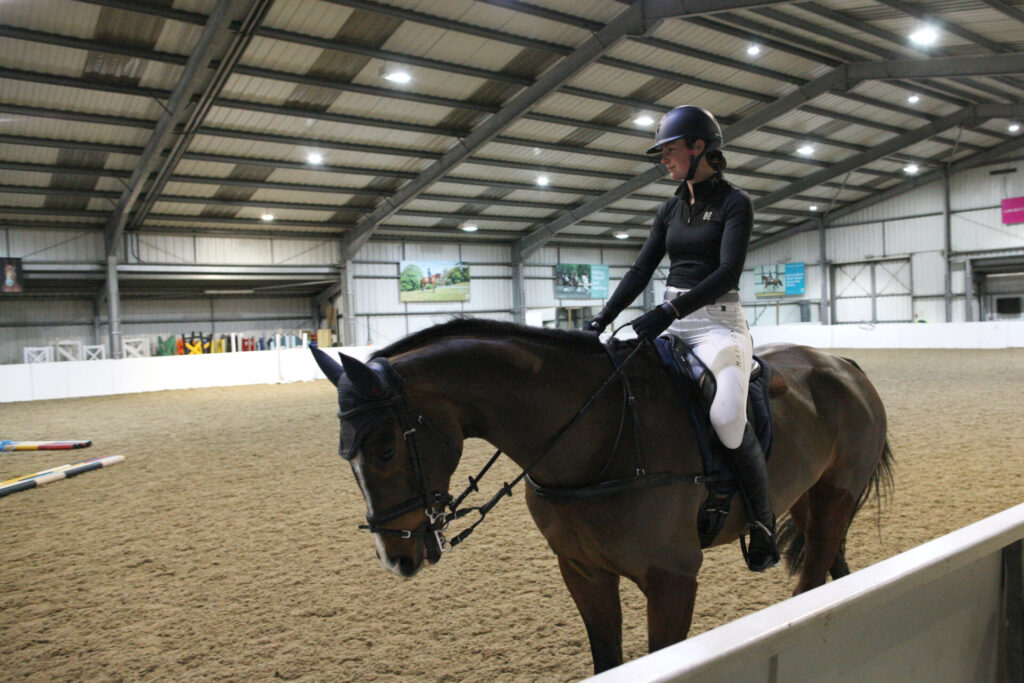
And finally – cross country!
This was the part I was looking forward to the most, of course. I got back on board and promptly thought “oh jeez… there are some very skinny skinnies in here!” (a skinny is a narrow cross country obstacle – not a supermodel!).
Interestingly, we started in walk, allowing the horses to assess and understand the fences – which were only small – before adding any pace. Harry also built a TERRIFYING fence (to Henry), which had a water tray underneath and was covered in hi-viz jackets.
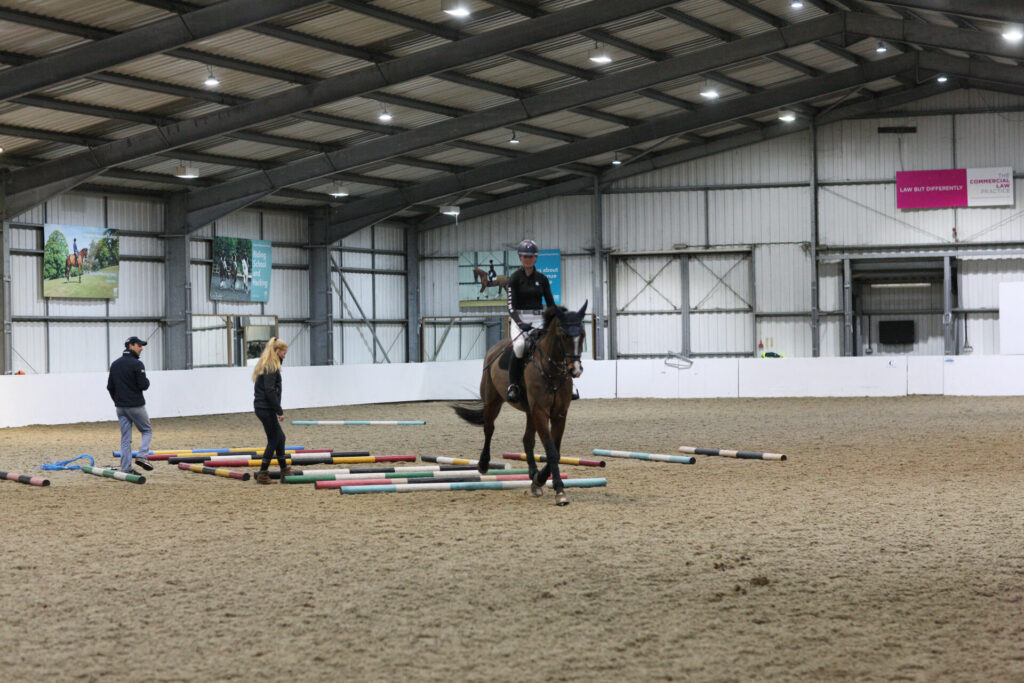
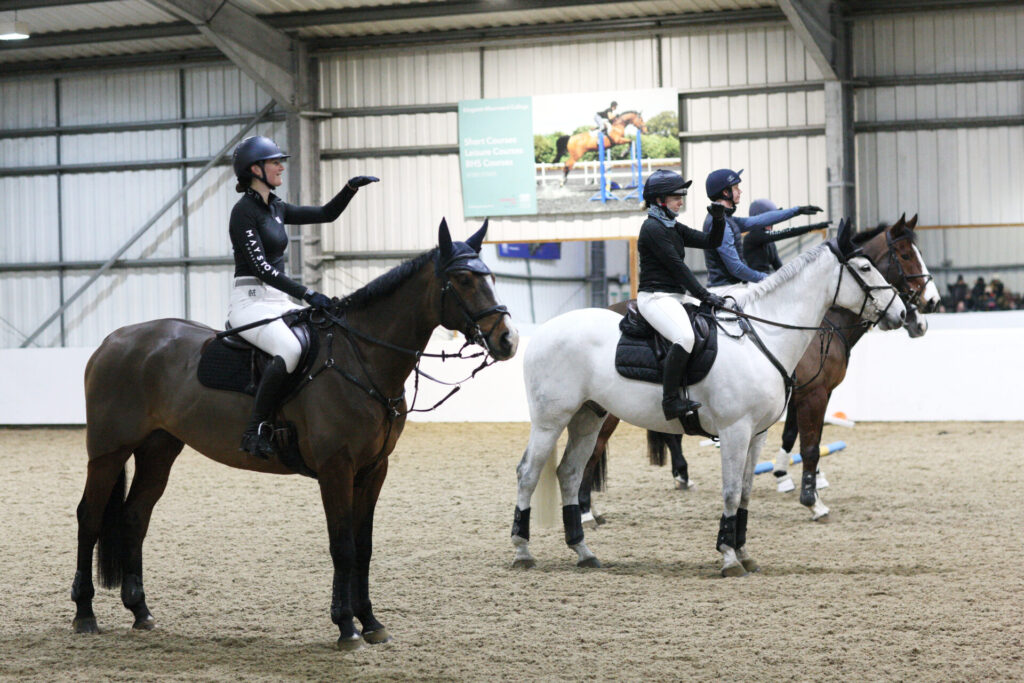
No surprise then – the first time he saw it, Henry attempted to spin and run a mile!
Harry instructed me to sit back while keeping a loose rein and my leg on, encouraging Henry to take his time and read the obstacle, while taking confidence from his rider.
After his initial panicky reaction, he was the perfect model student and jumped it beautifully. I was so pleased with this piece of work and definitely took some notes!
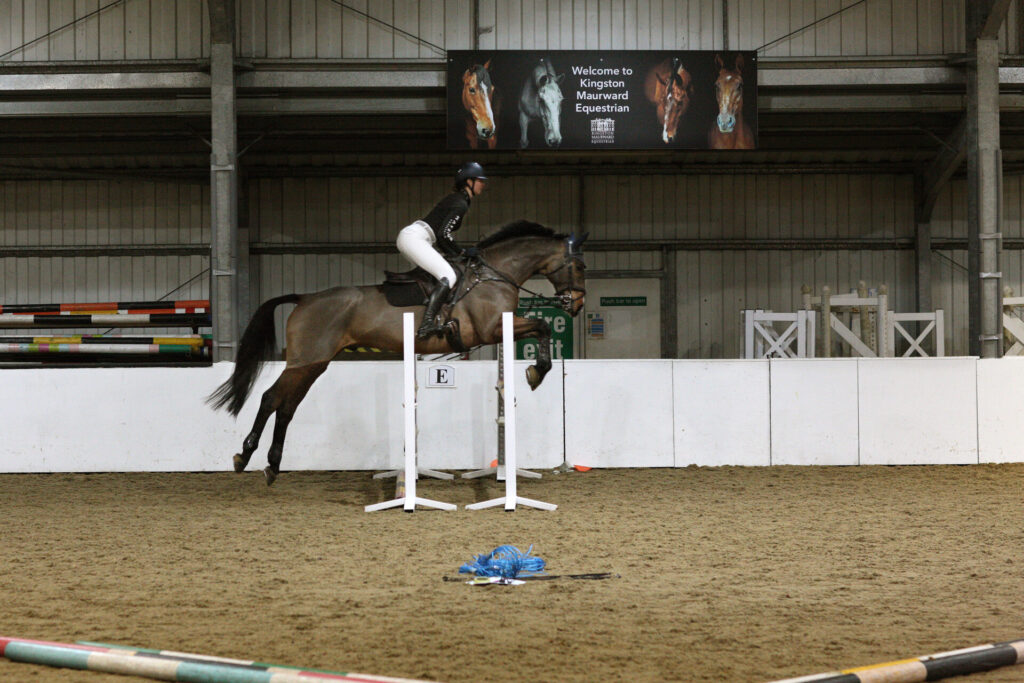
The equine dachshund
Finally, we were able to play over some more complicated cross-country lines, working on adjustability. This was not only brilliant fun, but also super educational, as this is another of Henry’s weaker points (to be fair, it’s hard to “coil and stretch like a spring” when you’re built like an equine dachshund!).
Overall, there was so much to take away from the evening – and I’m not just talking about all of Harry’s analogies translating horses to real-life (I’m not kidding – we were “unscrewing lightbulbs”, “throwing cannonballs off cliffs” and putting our feet “on the dashboard”!).
Henry and I gained so much, and I’m looking forward to applying it all into the remainder of our winter training. At the start of December the other horses come back into work, and it’ll be useful to employ lots of it with them, too!
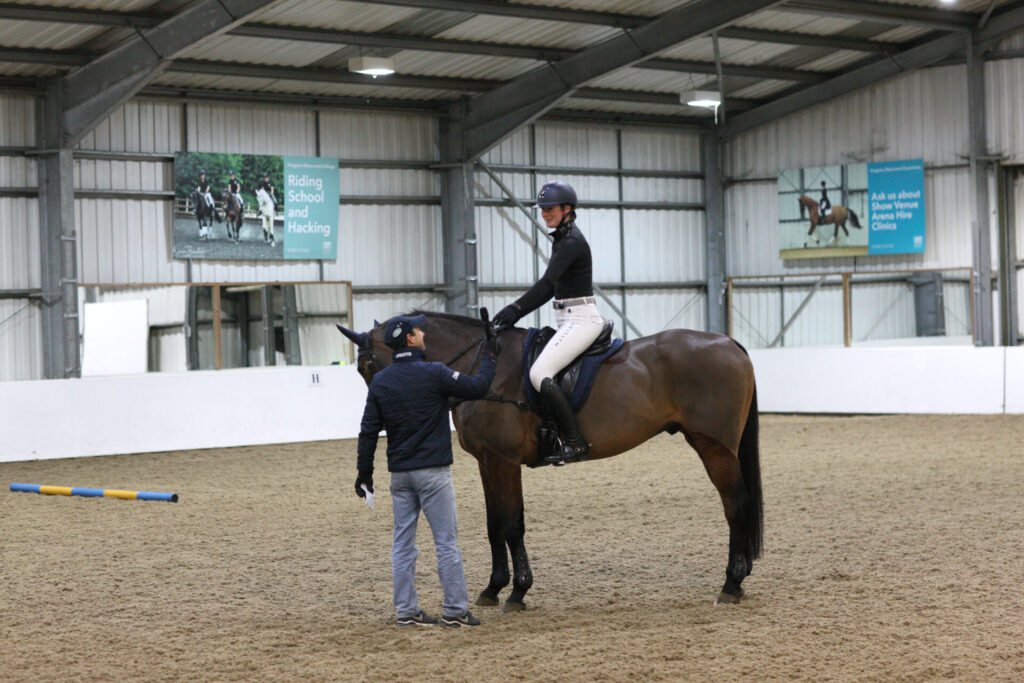
Kingston Maurward Equestrian held the lecture demo evening with Harry Meade, inviting four local event riders to be put through their paces by Harry, riding through a wide variety of exercises on the flat and over jumps. Harry explained the philosophy behind his training methods and why he uses these particular exercises with his own horses. He simultaneously coached the riders while entertaining his audience – the event was a great success, with more then 170 members of Dorset’s equestrian community in the audience.
Kingston Maurward offers a dynamic programme of full-time equine education, running courses up to Level 3. One of their most successful alumni members is Harry Meade’s own head girl, Jess Errington.


